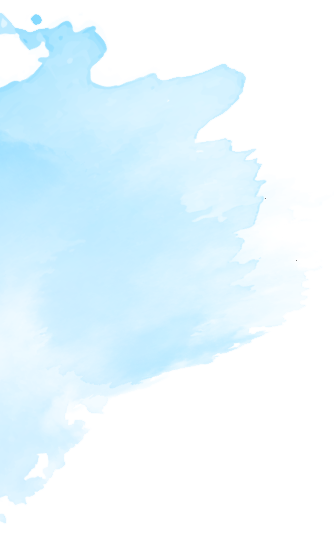Story

Eagle's Wings- A success story of the cerebral palsy wellness journey
REPORT ON THE EAGLE’S WINGS PROGRAM UNDER DORCAS SOCIETY
Introduction
The EAGLE’S WINGS by M/s Dorcas Society is a program aimed at improving the health and well-being of children with cerebral palsy mainly in the Buuri Sub-county of Meru County which unfortunately has a high and rising prevalence of cerebral palsy cases.
In our efforts to understand and address this issue, M/s Dorcas Society collaborated with the M/s Njeri Maria Foundation, (an organization led by a young Cerebral Palsy advocacy champion) to carry an assessment and provide the much-needed therapy to the ever-growing number of Cerebral palsy children in this region.
It is at this point that we reached out -M/s IPSOS- who found our cause very compelling, and have continued to get your support which we are very grateful for.
Therapy clinics
We began the assessment and therapy in 2023 and we are pleased to report that so far we have carried out 4 cerebral palsy clinics. During these sessions, each child is attended to by a professional therapist for an extended length of time in the presence of the caregiver. The purpose of this is to engage the caregiver intensively to the point of receiving basic skills of therapy that enables them to continue with the therapy at home. This is not only helpful but also one of the most sustainable therapy solutions.
The therapists are drawn from a pool of specialists from SEP-Special Education Professionals. The team is comprised of Physio, occupational, speech, cognitive therapists.
Buuri subcounty is vast and in order to reduce the distance and time travelled by the caregivers/ children to attend the clinics from one end to another we have chosen two different locations where we hold the clinics. The clinic therefore takes two days but this may change with the increased number of children.
The clinics began in June 2023 with 39 children. This number has soared to 94 children by the last clinic held in April 2024. It is important to note that there has been no formal /official announcement of the program, and we expect many more children to come forth once details of the program become public / with increased awareness. It is also worth noting that our concentration is on younger children aged 20 years and below because therapy is less impactful for older persons.
We are also pleased to report marked improvement of the children and their caregivers since we began the program. This is not only the physical appearance and ability to do things they were not able to do earlier but also the demeanor, the spirit, and great positive attitude. There is life joy and so much hope among them. This is what inspires us and keeps us back.
Indeed, we have noted remarkable changes. Some children have begun to improve their motor /cognitive skills to the great amazement of their caregivers. While the milestones are slow and far apart, they are positive and very impactful.
On the part of the caregivers, we have observed remarkable energy, goodwill and healing since they started to meet as caregivers of children with similar disabilities. They are full of confidence and hope
Earlier on M/s Ipsos sponsored us with custom made Assistive devices for the children and we have since had them fitted. The same have a gone a long way to improve the lives of these children.
As per our initial assessment analysis and recommendation we are pleased that so far the whole program is going well with a lot more to do as we progress. Here below is a summary of our findings recommendations and progress/activities touching on the recommendations therein.
Summary of findings recommendations actions and way forward
Initial findings | Recommendations | Corresponding Programs | Way forward | |
1 | High level of stigma discrimination, rejection | Advocacy and Awareness Creation | Disability awareness programs in the community | Survey _ Eagerly wait for the IPOS led survey that will guide in formulation of various policies including awareness |
2 | cleanness and wellness | Supply of dignity packs (diapers and bibs | Caregiver empowerment programs | M/s Walkabout Foundation to continue assisting with reusable diapers/ train caregivers to make reuseable diapers |
3 | Poor health/ wellbeing of the children | Supply of high nutritional value package | To source for | |
4 | Constant need for mobility support and daily positioning | Assistive technology devices | Ipsos supplied devices for each child | There is constant need to assess the device so as to improve and change as the child improves grows/develops |
5 | Lack/minimal therapy | Frequent Therapy sessions | The clinics have gone a long way to address this gap. In addition, the parents have skills to carry on therapy at home | Access to quipped accessible therapy Centre |
6 | Non exposure to formal education /school program is no integrated | Concerted awareness efforts to open and equip schools to cater/accommodate children with cp | Survey will provide data that will assist in policy formulation and partner with government | |
7 | High level of bitterness/hopelessness/poverty and apathy among caregivers | Programs aimed at offering for physio -social support to the caregivers in addition to economic empowerment | Two self-help groupings of Caregivers are in place | Increase Economic empowerment opportunities. Exposure to caregiving training |
Scheduled Therapy Clinic for 2024
As indicated above the by-monthly Therapy sessions are scheduled as follows
Month (2024) | Dates | |
1 | June | 25 and 26 |
2 | August | 20 and 21 |
3 | October | 23 and 24 |
4 | December | 17 and 18 |
Establishment of Pediatric Therapy centre
We are further pleased to report that the local level 4 hospital has allocated us a portion of land from their 30-acre land where can put up a cerebral palsy therapy Centre. This goes very well with our long-term recommendation for a centrally placed facility where all the children can get therapy as many times as they need to. We believe this will greatly improve the lives of the children not only in this subcounty but the surroundings as there is no other facility of its kind in the area.
Survey/research
M/s Ipsos (K) has offered to carry out a research on the matter so as to establish the prevalence of the condition in the subcounty. We look forward to this important exercise that will go a long way to address the important gaps of authentic data. The exercise will also help in policy formulation, funding and, more important creation of awareness.
Funding
Doris Mugambi (Mrs)
Founder/Director Dorcas Society

